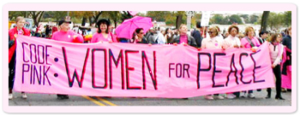World Bee Day | 20 May
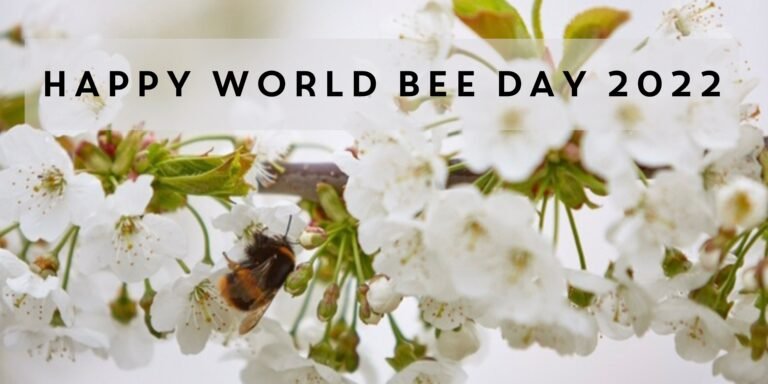
Why a World Bee Day?
By observing World Bee Day each year, we can raise awareness on the essential role bees and other pollinators play in keeping people and the planet healthy, and on the many challenges they face today. We have been celebrating this day since 2018, thanks to the efforts of the Government of Slovenia with the support of Apimondia, that led the UN General Assembly to declare 20 May as World Bee Day.
The date for this observance was chosen as it was the day Anton Janša, a pioneer of modern apiculture, was born. Janša came from a family of beekeepers in Slovenia, where beekeeping is an important agricultural activity with a long-standing tradition.
Today bees, pollinators, and many other insects are declining in abundance. This day provides an opportunity for all of us – whether we work for governments, organizations or civil society or are concerned citizens – to promote actions that will protect and enhance pollinators and their habitats, improve their abundance and diversity, and support the sustainable development of beekeeping.
Grow bee friendly plants
One of the simplest ways we can relate to nature and take actions as individuals to help the bees is to plants pollinator friendly flowers that are rich in pollen and nectar that will blossom at different times of the year. You can plant perennial, flowering annuals, shrubs and trees.
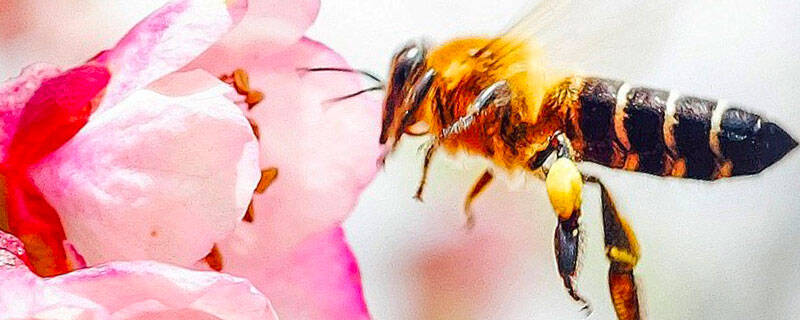
Install a Bee Hotel
Invite some backyard buddies to pollinate your flower and vegetable garden by making a bee hotel. You can buy or make your own bee hotel to help them along with untreated wooden planks for a box, reeds, bamboo canes and hollow stems for them to rest, nest and lay their eggs in! Fix the bee hotel securely 1-2m above ground level in the sunniest part of your garden and watch the bees go back and forth during the Spring and Summer months.
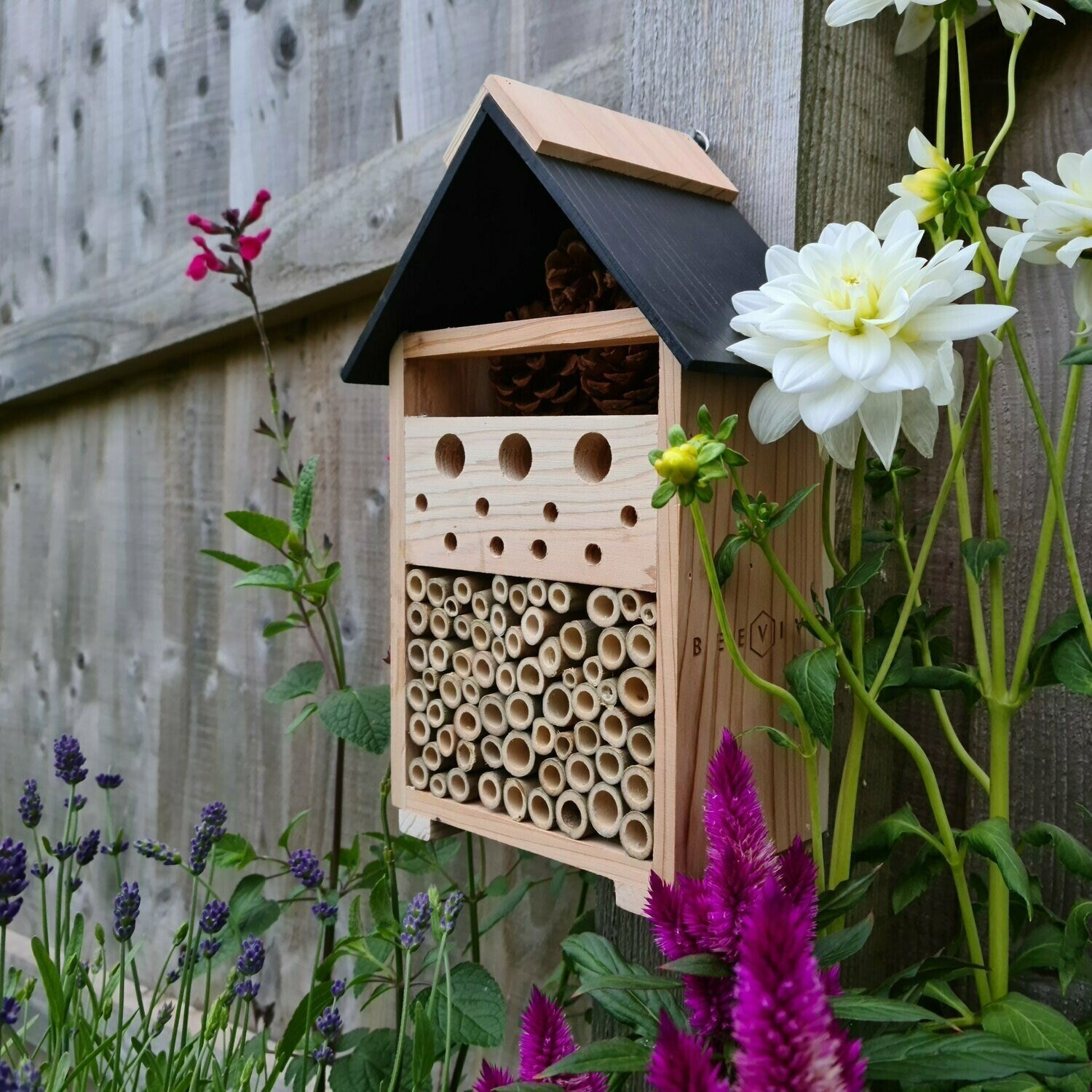
Create a bee bath
When we think about the many ways that we can help bees in our own green spaces, we often think of planting attractive flowers. However, bees have another need – water. Beyond drinking water to keep hydrated, bees need water for their bee hives. The water keeps the humidity levels under control, cools the hive and helps in the production of honey.
Outside you can leave a little dish of water with rocks for the bees to perch on. It is important that the dish is shallow as bees don’t need a lot of water. The bee bath needs to be in a sunny, sheltered spot – that bees will want to visit.

Beekeeping supports the livelihood and food security of small-scale producers and rural communities.
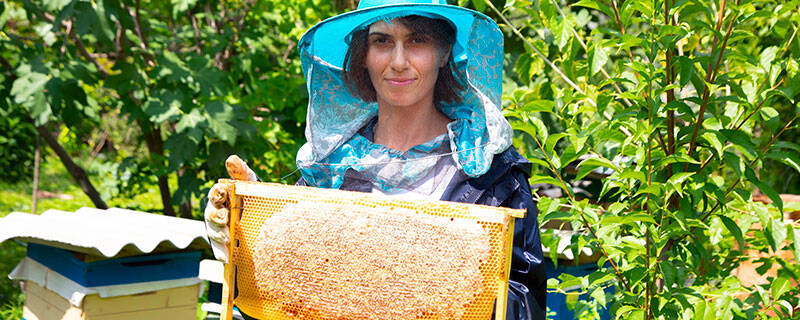
Beekeeping is a widespread and global activity, with millions of beekeepers depending on bees for their livelihoods and well-being. Together with wild pollinators, bees play a major role in maintaining biodiversity, ensuring the survival and reproduction of many plants, supporting forest regeneration, promoting sustainability and adaptation to climate change, improving the quantity and quality of agricultural productions.
This year FAO will celebrate World Bee Day through a virtual event, under the theme ‘Bee Engaged: Celebrating the diversity of bees and beekeeping systems’
The event featuring bee and pollinator experts and practitioners from across the world will open with a video message by FAO Director-General QU Dongyu. The event will raise awareness on the importance of the wide variety of bees and sustainable beekeeping systems, the threats and challenges they face and their contribution to livelihoods and food systems.
The event will be available in English, French, Spanish, Arabic, Chinese and Russian languages.
‘Now is a time to re-think how we can support bees and the livelihoods and systems they, in turn, support.
Bee engaged – Celebrating the diversity of bees and beekeeping systems
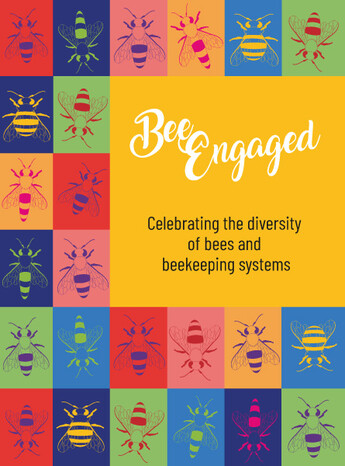
20 May 2022, 13:00–14:45 CEST
Agenda | Register | Webcast
For centuries bees, among the hardest working creatures on the planet, have benefited people, plants and the environment. By carrying pollen from one flower to another, bees and other pollinators enable not only the production of an abundance of fruits, nuts and seeds, but also more variety and better quality, contributing to food security and nutrition.
Pollinators such as bees, birds and bats, affect 35 percent of the world’s crop production, increasing outputs of 87 of the leading food crops worldwide, plus many plant-derived medicines. Three out of four crops across the globe producing fruits or seeds for human use as food depend, at least in part, on pollinators.
We need to celebrate bees every day, as without them we wouldn’t have any fruit or crops.
There are no upcoming events.
There are no upcoming events.
![]()
- Women suffer disproportionately from ravages of drought, desertification June 18, 2023editor
 Play video © WFP/Alessandro Abbonizio Women collect water in drought-stricken Marsabit in northern Kenya. Women’s land rights ...
Play video © WFP/Alessandro Abbonizio Women collect water in drought-stricken Marsabit in northern Kenya. Women’s land rights ... - Tackling marine pollution: Individual action, key to ocean restoration June 18, 2023editor
 Ocean Image Bank/Sören Funk One of the biggest threats to our ...
Ocean Image Bank/Sören Funk One of the biggest threats to our ... - ‘Transformative change’ needed to get Global Goals back on track, says UN deputy chief May 10, 2023editor
 UN Chile: UN Deputy Secretary-General Amina Mohammed at the opening of the Forum of the ...
UN Chile: UN Deputy Secretary-General Amina Mohammed at the opening of the Forum of the ...
![]()
- A Book Review: The Living Goddess September 23, 2022Tim ReeseThe book is about the time, when God was worshipped as female in Europe and ...
- Cultural destruction in Ukraine by Russian forces will reverberate for years, UN rights expert warns June 5, 2022editor
 UN News/Dina Neskorozhana The Andriyivska church in Dnipro, Kyiv, overlooks the historic Podil neighborhood. The attempted destruction ...
UN News/Dina Neskorozhana The Andriyivska church in Dnipro, Kyiv, overlooks the historic Podil neighborhood. The attempted destruction ... - Radio: The universal medium that leaves no one behind February 20, 2022editor
 © UNICEF/Seyba Keïta A ninth grade student follows her lessons on the radio in Mali. In the ...
© UNICEF/Seyba Keïta A ninth grade student follows her lessons on the radio in Mali. In the ...
![]()
- Sustainable blue economy vital for small countries and coastal populations June 4, 2023editor
 Unsplash/Benjamin L. Jones Seagrass meadows – expanses of green, grass-like shoots and flowers – are ...
Unsplash/Benjamin L. Jones Seagrass meadows – expanses of green, grass-like shoots and flowers – are ... - Healthy forests, healthy planet, healthy humans May 14, 2023editor
 © UNICEF/Rindra Ramasomanana Forests support many local communities in Madagascar. Forests are often called the lungs ...
© UNICEF/Rindra Ramasomanana Forests support many local communities in Madagascar. Forests are often called the lungs ... - First Person: Sharing indigenous knowledge with tourists September 4, 2022editor
 Ivar Velasquez Indigenous Argentinian tourism entrepreneur Hero photo alt text Celestina Ábalos stands outside her home. After ...
Ivar Velasquez Indigenous Argentinian tourism entrepreneur Hero photo alt text Celestina Ábalos stands outside her home. After ...
![]()
The national CodePink organization organizes for justice for Iraqis and to hold war criminals accountable. CodePink actively opposes the U.S. war in Afghanistan, torture, the detention center at Guantanamo, weaponized and spy drones, the prosecution of whistleblowers, U.S. support for the Israeli occupation of Palestine and repressive regimes.
Rooted in a network of local organizers, CodePink's tactics include satire, street theatre, creative visuals, civil resistance, and directly challenging powerful decision-makers in government and corporations. And, of course, wearing pink!
